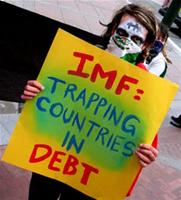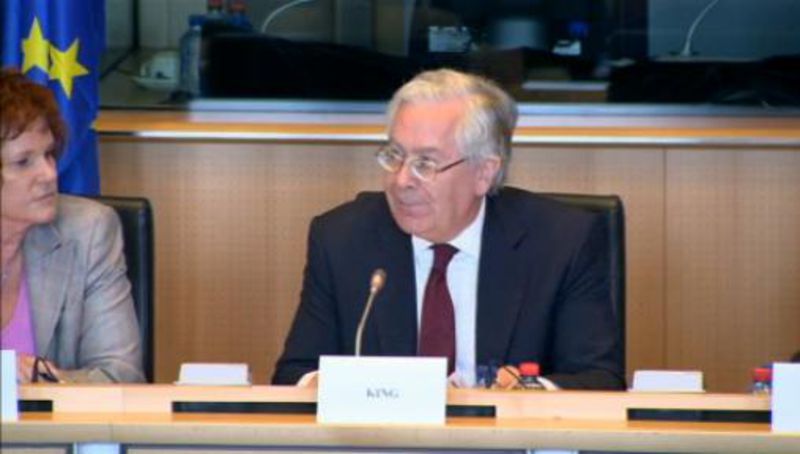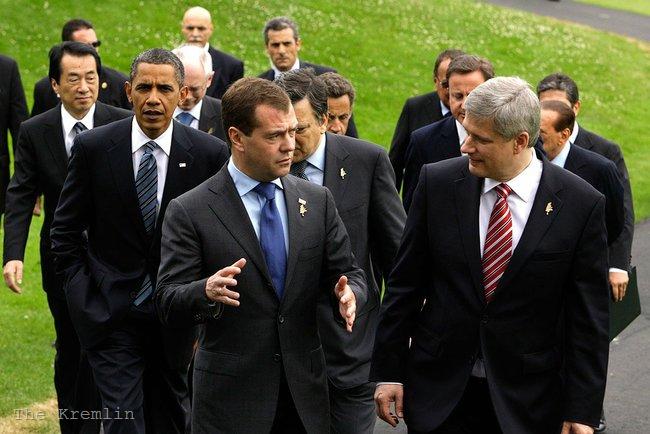G20 will be the winner of the crisis
Adelina Marini, September 24, 2009
 It's been for some years a discussion about reforming the UN in such a way to represent better the global balance of power. The way the world organisation is established it very much reflects the realities of the time around the World War II. Now the world is different. But the reform of the UN is stuck and then the crisis came. It was the crisis that proved that the world really needs a global organisation that can tackle the main challenges and solve the problems one by one in an appropriate format. Fortunately, this format appeared and that is the Group of Twenty - some call them most developed countries but it is more correct to say that this group represents the most developed industrialized and rich countries and the fast developing countries. The representation in the G20 is more than indicative - there are countries from all continents who voice is heard in one or another regional, religious or economic forum.
It's been for some years a discussion about reforming the UN in such a way to represent better the global balance of power. The way the world organisation is established it very much reflects the realities of the time around the World War II. Now the world is different. But the reform of the UN is stuck and then the crisis came. It was the crisis that proved that the world really needs a global organisation that can tackle the main challenges and solve the problems one by one in an appropriate format. Fortunately, this format appeared and that is the Group of Twenty - some call them most developed countries but it is more correct to say that this group represents the most developed industrialized and rich countries and the fast developing countries. The representation in the G20 is more than indicative - there are countries from all continents who voice is heard in one or another regional, religious or economic forum.
And today is the summit of the Twenty in the American city of Pittsburgh. And though the introduction of this article started inspiring, in fact 2 of the main issues in the agenda of the summit do not look that easy to solve - the laying the foundations of the new global financial architecture and the principles upon which the new climate change deal will lay upon (which is expected to be agreed in the end of the year in Copenhagen). euinside has many times written on both issues. According to the Carnegie Endowment for International Peace the challenges of the summit are not exactly these 2 issues but 4.
The first challenge is what kind of recovery is coming ahead for the global and the national economies, because the positive news from the past couple of weeks are really increasing hope but they do not give a very clear perspective of the sustainability of the process. According to Carnegie, the recovery would remain vulnerable for the next 1-2 years.
The second challenge when should the stimulus programmes end. Here the authors from the endowment underline the double role of the central banks during the crisis. On the one hand, they appear as a guarantee to the stability, but on the other - they've become its victims. Withdrawal of fiscal stimulus is not urgent but it shouldn't be prolonged as well because serious inflation risk will emerge as the economy recovers. And not all banks have recovered there balance sheets. Regretfully, monetary policies are not on the agenda of the Pittsburgh summit because they are in the competences of central banks, which we know, are independent.
Thus we come to the third challenge, outlined by the Carnegie Endowment for International Peace - how to avoid the same crisis in the future? There are several lessons which the policy makers should learn from this crisis: better risk management and financial sector regulatory  oversight must be introduced, macroeconomic policies must go beyond inflation and growth targets and must also take into account housing and financial bubbles, and a well-resourced lender of last resort in the shape of the International Monetary Fund must exist. Carnegie writes that only on the last of these items the G20 countries made serious progress, which is - the leading role of the IMF as a last resort for the most needing countries.
oversight must be introduced, macroeconomic policies must go beyond inflation and growth targets and must also take into account housing and financial bubbles, and a well-resourced lender of last resort in the shape of the International Monetary Fund must exist. Carnegie writes that only on the last of these items the G20 countries made serious progress, which is - the leading role of the IMF as a last resort for the most needing countries.
And while the issue of executive compensation has drawn much attention, it is not clear what the G20 can or should do in this area, the authors write. But on the other hand, the case for coordinating financial regulation regimes, including capital requirements, in highly integrated international capital markets is very strong. And here comes the big contradiction.
 Asking central banks to take on a more active role in preventing future crises is an easy lesson to draw but a difficult one to act on without incurring large consequences. Giving central banks regulatory oversight of the financial system, as proposed by the U.S. administration to Congress, or expecting monetary policy to address asset bubbles, would inevitably draw them deeper into the political arena and further call their independent status into question.
Asking central banks to take on a more active role in preventing future crises is an easy lesson to draw but a difficult one to act on without incurring large consequences. Giving central banks regulatory oversight of the financial system, as proposed by the U.S. administration to Congress, or expecting monetary policy to address asset bubbles, would inevitably draw them deeper into the political arena and further call their independent status into question.
Under number 4 of the challenges, laid out by the Carnegie Endowment on the eve of the summit of the G20, is the future agenda of the Twenty. According to the foundation, the new format quite successfully is building upon the G8 most developed industrialized countries of the world. But still, there is more to be done to make the representation in the G20 as balanced as possible. According to Carnegie, Africa is particularly underrepresented while Europe is over-represented both by some of its member states and by itself as a European Union. Carnegie also recommends, in the shadow of the G20, the WTO (the World Trade Organisation) to be reformed as well.
And as we heard yesterday during the opening session of the UN General Assembly, where the president Barack Obama held his first speech as a president of the US, the world organisation also needs a reform. The questions is who is to take care to avoid duplication of functions because of over-reforming. It won't be a bad idea when the reforms start a mechanism to be implemented that will allow in future changes of the status quo, the reforms to start immediately so as to be useful. Because, as we know very well, after a problem appears - there are numerous solutions.
And little about Pittsburgh itself - as the summit will discuss climate change, the  administration of president Obama decided to find a city to host the summit that will best symbolize the change of the American policy - both keeping its leading economic role in the world and successfully join all international initiatives like preventing global warming. As the BBC reports, Pittsburgh appeared to be perfect for the purpose - from a former smoky steel town, full of dust and home to mining and other heavy industry, now the town is fully transformed - it is full of tourists on pleasure cruisers between the wooded banks of its three rivers and where people make a living in services such as health and education or in hi-tech business.
administration of president Obama decided to find a city to host the summit that will best symbolize the change of the American policy - both keeping its leading economic role in the world and successfully join all international initiatives like preventing global warming. As the BBC reports, Pittsburgh appeared to be perfect for the purpose - from a former smoky steel town, full of dust and home to mining and other heavy industry, now the town is fully transformed - it is full of tourists on pleasure cruisers between the wooded banks of its three rivers and where people make a living in services such as health and education or in hi-tech business.
 | © European Union
| © European Union | © European Union
| © European Union | © European Union
| © European Union | © The Kremlin
| © The Kremlin